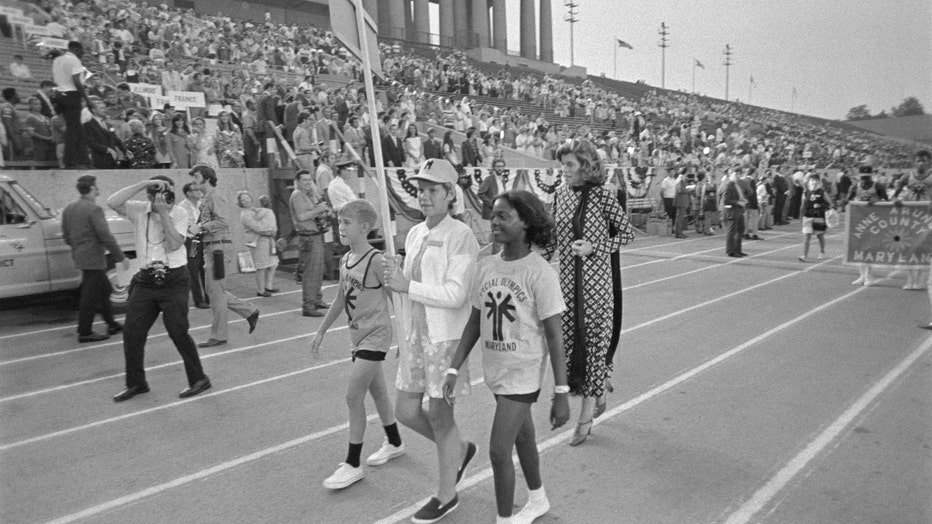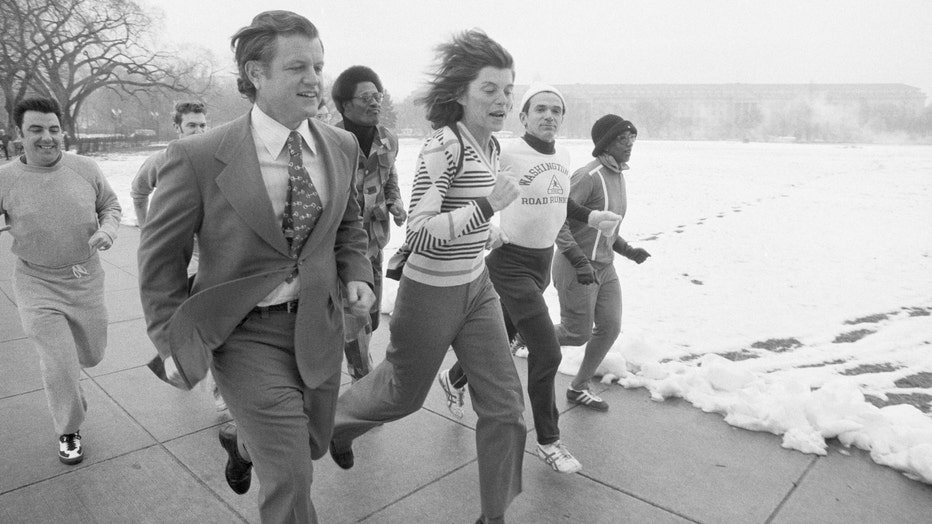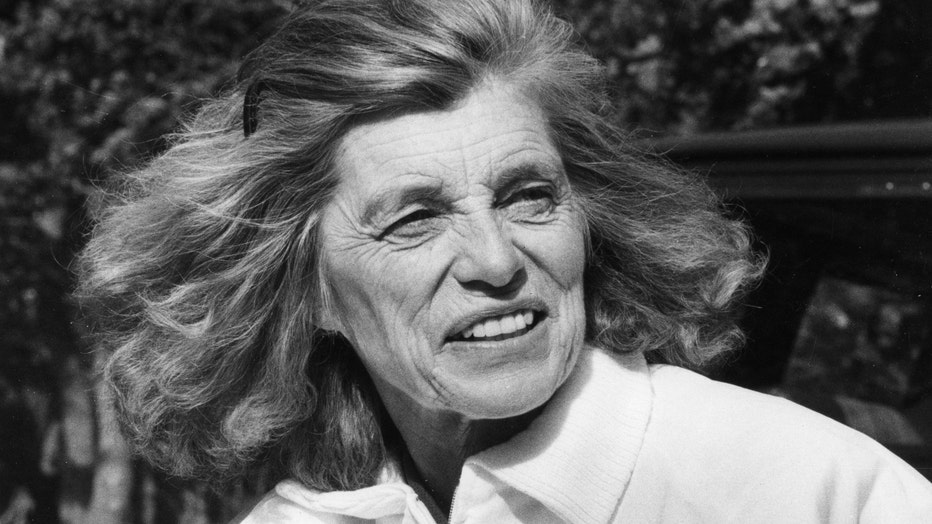On this day in Chicago history: Soldier Field hosts first Special Olympics Summer Games
CHICAGO - On this day in history, July 20, 1968, athletes competed in the first Special Olympics International Games — now the largest sporting event for people with intellectual disabilities, according to National Geographic.
The first Special Olympics International Games were held at Soldier Field in Chicago, Illinois.
About 1,000 athletes with intellectual disabilities from the United States and Canada competed in the first Special Olympics International Summer Games in Chicago, the Special Olympics’ official website noted.
The Special Olympics were developed by Eunice Kennedy Shriver, a sister of President John F. Kennedy.
SUBSCRIBE TO FOX 32 ON YOUTUBE
Throughout the 1950s and early 1960s, Kennedy Shriver decided to take action when she noticed the unjust treatment of people who developed and learned more slowly or differently because of cognitive issues out of their control, noted the Chicago Sun-Times.

Mrs. Eunice Kennedy marches behind banner carriers of the Maryland delegation during parade of the delegations at opening ceremonies of the International Special Olympics at Chicagos Soldier Field. (Getty Images)
She drew inspiration directly from her intellectually disabled sister, Rosemary, the same source indicated.
"The Opening Ceremony included a teen runner carrying a torch to light a 45-foot-high John F. Kennedy Flame of Hope. Over 200 events were offered, including broad jump, softball throw, 25-yard swim, 100-yard swim, high jump, 50-yard dash, water polo and floor hockey," the Special Olympics’ official website said.
In her opening remarks, Kennedy Shriver said, "Children with intellectual disabilities can be exceptional athletes and … through sports they can realize their potential for growth," according to National Geographic.
She pledged that this new organization, the Special Olympics, would offer people with intellectual disabilities everywhere "the chance to play, the chance to compete and the chance to grow," the same source recounted.
The inaugural games were organized by Illinois Supreme Court Justice Anne McGlone Burke, who was then a 23-year-old physical education teacher with the Chicago Park District, and Eunice Kennedy Shriver and the Joseph P. Kennedy Jr. Foundation, according to the Chicago History Museum.
The Special Olympics originated and grew from "Camp Shriver" — held in Kennedy Shriver’s own backyard.
That's where she created programs for young people with intellectual disabilities, said National Geographic.
This was the first introduction for many children to swimming, canoeing, horseback riding and structured games.

On Feb. 6, 1975, Sen. Edward M. Kennedy, D-Mass. (center, rear) and his sister, Eunice Kennedy Shriver (center, front), jogged and walked a mile on the Ellipse in Washington, D.C., to kick off a 3,182-mile fundraising jaunt for the benefit of the Spe (Getty Images)
Through sports, Kennedy Shriver was changing the way people acted and reacted toward the intellectually disabled, the National Museum of American History noted.
The 1968 event was so well-received that Kennedy Shriver pledged that more games would be held in 1970 and every two years thereafter as a Biennial International Special Olympics, according to the Special Olympics official website.
In 1971, the U.S. Olympic Committee granted Special Olympics the approval as the only other organization allowed to use the name "Olympics" in the U.S. said the Chicago Sun-Times.
The first Special Olympics World Winter Games were held in February 1977 in Steamboat Springs, Colorado, according to Britannica.com.
In March 1993, the Special Olympics International Winter Games were held in Austria.

Eunice Kennedy Shriver at a special Olympics event at the Wrentham State School in Wrentham, Mass., Oct. 18, 1985. (Joe Dennehy/The Boston Globe via Getty Images / Getty Images)
These games, hosted in both Schladming and Salzburg, were the first International Games held outside the USA, noted the official website of the Special Olympics.
"The 1993 International Winter Games in Austria set national records for media coverage," noted the same source.
By the early 21st century, there were chapters in approximately 200 countries.
There were also in excess of one million athletes participating annually in 20,000 meets and tournaments held worldwide, culminating in the international Special Olympics World Games held every two years, alternating between winter and summer sports, the same source chronicled.
Today, Special Olympics is the world’s largest sports organization for people with intellectual disabilities: It has more than 4.9 million athletes in 172 countries and over a million volunteers, according to the National Museum of American History.
The mission of Special Olympics is to provide year-round sports training and athletic competition in a variety of Olympic-type sports for children and adults with intellectual disabilities, according to the same source.
Most recently, in June 2023, the Special Olympics Summer World Games held in Berlin, Germany, welcomed 7,000 Special Olympics athletes and unified partners from approximately 190 countries to compete in 26 sports.
The athletes were supported by more than 3,000 coaches and 20,000 volunteers, according to the Special Olympics.
The next Special Olympics World Winter Games will be held in Torino, Italy. March 2025.

